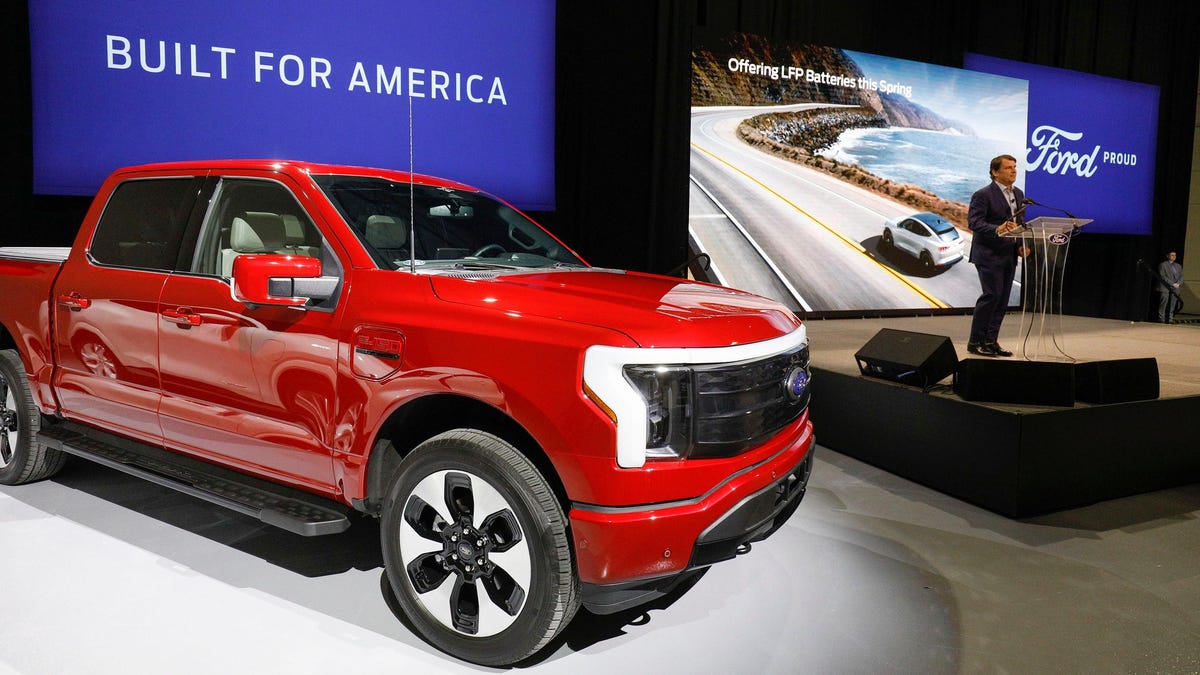When Donald Trump traveled to Michigan to speak with workers at a non-union auto parts supplier that reportedly pays less than McDonald’s does, he attacked the Biden administration for its support of electric vehicles. “Hundreds of thousands of American jobs, your jobs, will be gone forever,” Trump told his audience. “By most estimates, under Biden’s electric vehicle mandate, 40 percent of all U.S. auto jobs will disappear.” And he’s not alone in that belief. The idea that EVs will require fewer workers is pretty widely accepted as a fact.
On the surface, at least, it makes sense. You don’t need to pay someone to install an alternator or a starter on an EV because EVs don’t have starters or alternators. So, of course, that would mean fewer jobs for auto workers. Plus, there’s the whole thing where a number of automotive executives have said they expect to need fewer workers in the future as EVs get more common. But as a new article on Heatmap points out, there isn’t actually much research available that shows that’s the case. In fact, it’s entirely possible that the opposite could be true.
For example, while Ford CEO Jim Farley famously said that “it takes 40 percent less labor to make an electric car,” if you look at the full quotation, he pretty clearly didn’t mean that Ford plans to lay off 40 percent of its workforce. His next sentence was, “So as a family company, we have to insource so that everyone has a role in this world. We have a whole new supply chain to fill out, in batteries and motors and electronics.” Basically, Ford is still going to need workers, but many are going to have to transition to new positions within the company.
Referencing a 2020 study commissioned by Volkswagen’s Sustainability Council, the article states:
One of the findings was that “employment intensity” for the final manufacturing of Volkswagen’s electric ID.3 is only 3% lower than that of the conventional Golf Mk8. The bigger gap is in the labor required to produce the individual components of each car’s drivetrain. The employment intensity of the battery system and electric motor, combined, was about 40% lower than that of the combustion engine and transmission system.
Notably, the study did not include the jobs required to produce the individual battery cells which make up the battery system, because Volkswagen wasn’t producing them at the time. But a more recent analysis of the U.S. manufacturing landscape found that cell production holds the most potential for job creation, and concluded that if you account for this, the transition to EVs could actually result in significantly more jobs.
Essentially, the future of U.S. auto workers partly depends on whether or not batteries are manufactured in the U.S. And thanks to tax credits included in the Inflation Reduction Act, automakers have a pretty big incentive to do exactly that. Since the IRA went into effect, companies have announced plans to build quite a few new battery factories in the U.S.
But there’s also evidence that suggests there’s more going on here than the need to simply send workers who currently assemble transmissions to go work in a battery factory. Anna Stefanopoulou, a professor of mechanical engineering at the University of Michigan, told Heatmap that using publicly available data, she found that if you look at EV factories that previously produced internal combustion vehicles, their annual output per worker is down across the board. For example, in the Tesla factory that used to be co-owned by General Motors and Toyota, production dropped from 80 vehicles per employee to an average of 30. So to build the same number of EVs, Tesla needs to employ more workers.
It’s an incredibly complicated issue, and the article on Heatmap gets into even more details, such as the problem of workers potentially needing to move to new states in order to transition into new roles. So head on over there and give the entire post a read.

